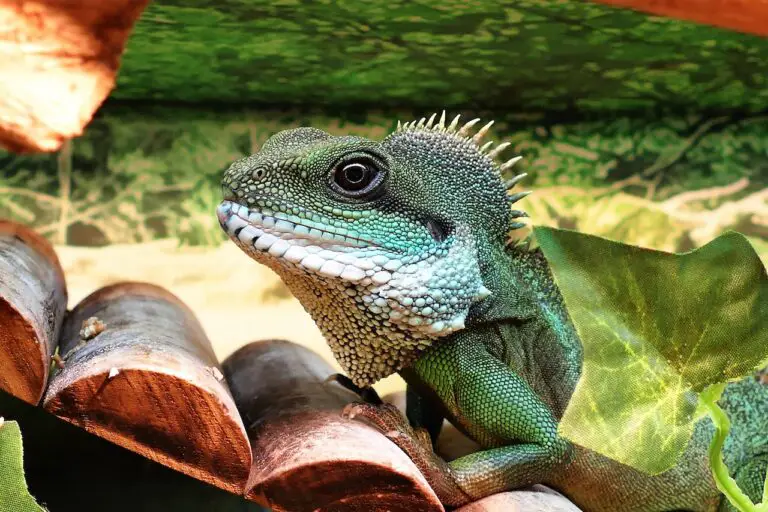How to Choose the Right Exotic Pet for Your Personality: Pro Tips
Owning an exotic pet can be an exciting and rewarding experience.
However, selecting the right exotic pet that aligns with your personality is crucial to ensure a harmonious relationship between you and your new companion.
With a wide variety of exotic animals to choose from, it can be overwhelming to make the right decision.
In this article, we will guide you through the process of choosing the perfect exotic pet that suits your personality and lifestyle.
Key Takeaways
- Choosing the right exotic pet requires understanding your own personality traits and preferences.
- Research different exotic pets to determine their characteristics, care requirements, and legal restrictions.
- Consider the specific care needs, space requirements, and time commitments associated with the exotic pet you are interested in.
- Familiarize yourself with the legal considerations and restrictions regarding exotic pet ownership in your area.
- Budget for the initial purchase cost, ongoing expenses, and potential emergency costs of owning an exotic pet.
- Interact with potential exotic pets to assess their behavior, temperament, and compatibility with you.
- Seek advice from exotic pet veterinarians, experienced owners, and reputable organizations to make an informed decision.
- Make a final decision based on personal connection, compatibility, and long-term commitment.
- Owning an exotic pet is a rewarding and fulfilling experience when the right match is found.
Remember to thoroughly research, assess your capabilities, and provide the necessary care to ensure the well-being and happiness of your exotic pet companion.
Understanding Your Personality
Before diving into the world of exotic pets, it’s crucial to have a clear understanding of your own personality traits and preferences.
Consider the following factors:
- Activity Level: Are you an active and outdoorsy person, or do you prefer a more relaxed and low-maintenance lifestyle?
- Patience and Temperament: Are you patient and gentle, or do you prefer animals that are independent and less demanding?
- Interaction Preferences: Do you enjoy hands-on interaction with pets, or are you comfortable with more observational and less interactive companions?
Assessing your personality will help you identify the type of pet that will be compatible with your lifestyle.
Researching Different Exotic Pets
Once you have a good grasp of your personality, start researching various exotic pets that pique your interest.
Consider the following aspects:
- Species Characteristics: Each species of exotic pet has unique characteristics, behaviors, and care requirements. Research their temperament, social needs, and lifespan.
- Legal Restrictions: Check the legal restrictions in your area to ensure that the exotic pet you choose is legal to own. Some species may require special permits or licenses.
- Compatibility with Children or Other Pets: If you have children or other pets at home, consider the compatibility of the exotic pet with them.
Considering Care Requirements
Each exotic pet comes with its own specific care requirements.
Consider the following factors:
- Diet and Nutrition: Research the dietary needs of the exotic pet you are considering. Some may require specialized diets, including fresh fruits, vegetables, or live prey.
- Environmental Conditions: Different exotic pets have specific environmental requirements, such as temperature, humidity, or lighting. Ensure that you can provide the appropriate conditions for their well-being.
- Healthcare Needs: Exotic pets may require regular veterinary check-ups, vaccinations, and specialized medical care. Consider the availability of exotic animal veterinarians in your area.
Evaluating Space and Housing Needs
Different exotic pets have different space and housing requirements.
Consider the following:
- Enclosure Size: Some exotic pets like reptiles may need large enclosures to accommodate their natural behaviors and movement. Others, like small mammals, may require smaller cages.
- Habitat Setup: Research the specific habitat requirements for the exotic pet you are interested in. This may include substrate, hiding spots, perches, or climbing structures.
- Indoor or Outdoor Space: Determine whether the exotic pet can be kept indoors or requires outdoor access. This will help you plan their living arrangements accordingly.
Assessing Time and Energy Commitments
Exotic pets require time and attention to thrive.
Consider the following:
- Handling and Interaction: Some exotic pets require daily handling and interaction to socialize and bond with their owners. Others may be more independent and require less direct contact.
- Exercise and Enrichment: Assess the exercise and enrichment needs of the exotic pet. This may include providing toys, puzzles, or opportunities for physical activity.
- Grooming and Maintenance: Certain exotic pets may require regular grooming, such as brushing or bathing. Consider the time and effort required for their grooming and maintenance.
Identifying Legal Considerations
Before bringing home an exotic pet, familiarize yourself with the legal considerations and restrictions in your area.
Consider the following:
- Permits and Licenses: Some exotic species may require special permits or licenses to own. Research the legal requirements and ensure compliance to avoid legal issues.
- Restricted Species: Certain exotic pets may be restricted or prohibited in certain areas due to conservation or safety concerns. Ensure that the pet you choose is allowed in your location.
Budgeting for Exotic Pet Ownership
Owning an exotic pet involves financial responsibilities.
Consider the following:
- Initial Cost: Research the initial purchase cost of the exotic pet, including any necessary equipment or setup.
- Ongoing Expenses: Consider the recurring expenses, such as food, bedding, veterinary care, and potential grooming services.
- Emergency Costs: Prepare for unexpected veterinary bills or emergency situations that may require immediate medical attention.
Interacting with Potential Exotic Pets
Once you have narrowed down your options, it’s crucial to interact with potential exotic pets before making a final decision.
Consider the following:
- Visiting Breeders or Exhibitions: Visit reputable breeders, rescue centers, or exotic pet exhibitions to observe and interact with different species.
- Observe Behavior and Temperament: Observe the exotic pets’ behavior, temperament, and how they respond to handling and interaction.
- Compatibility Assessment: Assess the compatibility between you and the potential exotic pet. Look for signs of bonding, comfort, and mutual enjoyment during the interaction.
Seeking Expert Advice
If you are still unsure about which exotic pet to choose, seek advice from experts in the field.
Consider the following:
- Exotic Pet Veterinarians: Consult with veterinarians who specialize in exotic pet care. They can provide insights into the specific needs and challenges of different species.
- Experienced Exotic Pet Owners: Reach out to experienced exotic pet owners for firsthand information and advice based on their own experiences.
- Reputable Exotic Animal Organizations: Contact reputable exotic animal organizations for guidance and recommendations regarding suitable pets for your personality and lifestyle.
Making the Final Decision
After considering all the abovementioned factors, it’s time to make the final decision.
Consider the following:
- Personal Connection: Choose an exotic pet that you feel a personal connection with and that resonates with your personality.
- Compatibility: Ensure that the pet’s temperament, activity level, and care requirements align with your lifestyle and capabilities.
- Long-Term Commitment: Remember that owning an exotic pet is a long-term commitment. Ensure you are ready for the responsibility and joy they can bring your life.
Conclusion
Choosing the right exotic pet for your personality requires thoughtful consideration and research.
You can make an informed decision by understanding your personality traits, researching different species, and considering factors such as care requirements, space needs, and time commitments.
Seek expert advice when needed and interact with potential pets before finalizing your choice.
Remember, each exotic pet is unique, and finding the perfect match will result in a rewarding and fulfilling companionship.
FAQs
Can I keep any exotic pet without legal repercussions?
Researching and understanding the legal considerations and requirements regarding exotic pet ownership in your area is essential.
Some species may require special permits or licenses.
Which exotic pet is suitable for someone with a busy lifestyle?
Exotic pets that are more independent and require less hands-on interaction, such as certain reptiles or small mammals, may be more suitable for individuals with busy schedules.
Are exotic pets more challenging to care for compared to traditional pets?
Exotic pets often have specific care requirements, which can make their care more challenging.
It’s essential to research and prepare to meet their needs thoroughly.
Do exotic pets require specialized veterinary care?
Yes, some exotic pets require specialized veterinary care.
It is crucial to find a veterinarian experienced in exotic pet medicine to ensure their health and well-being.
What if I change my mind after bringing an exotic pet home?
Owning an exotic pet is a long-term commitment.
However, if circumstances change and you are unable to provide proper care, consider reaching out to reputable exotic animal organizations for assistance in finding a suitable new home for your pet.
Peter Stones is the founder of Exotic Pets Place, the leading online resource for exotic pet care information.
With over 10 years of hands-on exotic pet ownership experience, he is deeply passionate about sharing his expertise to help others properly care for their unusual pets.
When he's not writing extensively researched articles or connecting with fellow exotic pet enthusiasts worldwide, you can find Peter at home tending to his own beloved menagerie of exotic animals.







